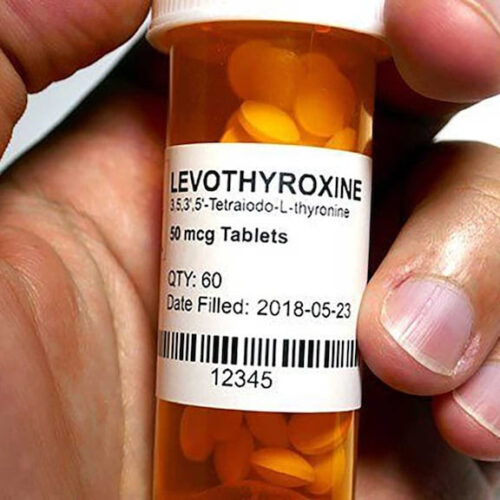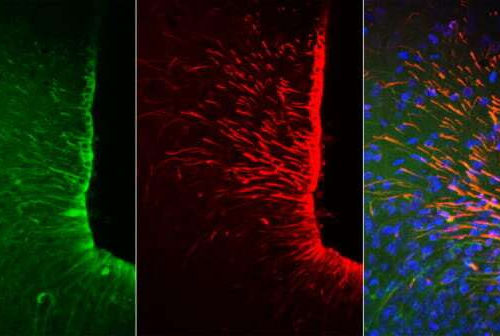Nancy A. Melville October 24, 2022 MONTREAL— Patients who discontinue levothyroxine for subclinical hypothyroidism may gravitate towards becoming mildly hypothyroid again, but they importantly show no differences in terms of symptoms and quality of life — and sometimes show even improvement — compared with those who continue treatment, new research shows. “Our results show feasibility of patient enrollment...
Tag: <span>hypothyroidism</span>
Can someone have hypothyroidism and hyperthyroidism?
While it is unlikely, a person may alternate between hyperthyroidism and hypothyroidism. This depends on the balance of thyroid antibodies present in autoimmune thyroid disorders. The thyroid is a butterfly-shaped gland at the base of the front of a person’s neck. It secretes hormones that help to control vital body functions. Hypothyroidism happens when the...
Levothyroxine Overused for Less Severe Hypothyroidism
by Kristen Monaco, Staff Writer, MedPage Today June 21, 2021 Levothyroxine was overprescribed for patients with subclinical hypothyroidism during the past decade, a new study found. Of patients in an insurance database with available data on thyrotropin and FT4 or T4 levels available from 2008 to 2018, the majority who were newly prescribed levothyroxine had...
Appetite can be increased by cells in the brain
by University of Warwick Tanycytes are glial cells, which communicate with neurons in the brain to inform it of what we have eaten. Researchers from the School of Life Sciences at the University of Warwick have found when tanycytes are selectively stimulated appetite was increased. It has previously been discovered that tanycytes—cells found in part...
Hypothyroidism patients cite effectiveness in choosing alternative to standard therapy
by The Endocrine Society Three in four hypothyroidism patients who chose desiccated thyroid extract (DTE) over the standard therapy said this option was more effective than other thyroid hormone medications, according to an analysis of comments in online patient forums accepted for presentation at ENDO 2020, the Endocrine Society’s annual meeting, and publication in a...
Thyroid 101: Hypothyroidism and Hyperthyroidism
There’s a small, butterfly-shaped gland in your lower neck, the thyroid, that secretes hormones (T3 and T4) and affects almost every organ in the body, regulating metabolic processes and controlling body temperature. When the thyroid doesn’t produce a normal hormone level, either not enough or too much, thyroid disease occurs. And according to Michigan Medicine...
Association Between Levothyroxine Treatment and Thyroid-Related Symptoms Among Adults Aged 80 Years and Older With Subclinical Hypothyroidism
Simon P. Mooijaart, MD, PhD1,2; Robert S. Du Puy, MD3; David J. Stott, MD4; et alPa Author Affiliations Article InformationJAMA. Published online October 30, 2019. doi:10.1001/jama.2019.17274 Key PointsQuestion Among adults aged 80 years and older with subclinical hypothyroidism, what is the association between treatment with levothyroxine and thyroid-related symptoms? Findings In this pooled analysis of...
Q&A: Mild hypothyroidism may not need treatment
by Mayo Clinic News Network Dear Mayo Clinic: I recently was diagnosed with mild hypothyroidism that isn’t causing symptoms. My doctor says I don’t need treatment now, but she wants me to come back for regular checkups. Does hypothyroidism usually get worse over time? If it does, how is it treated? A: For mild cases...
Experts Say Doctors Are Overtreating Thyroid Diseases
An international team of researchers warns that hundreds of thousands of patients might be unnecessarily taking prescription drugs to treat thyroid problems. The researchers analyzed data from 21 trials that involved a total of 2,192 participants, most of whom are over the age of 65. They found that those who have sub clinical hypothyroidism do...
Thyroid problems linked to worsening heart failure
The thyroid is a tiny powerhouse. The gland, which is located at the base of the neck, releases hormones that control how the entire body uses energy and affects an array of organs throughout the body – including the heart. Now, a new study from researchers at the University of Pennsylvania shows two thyroid disorders...




